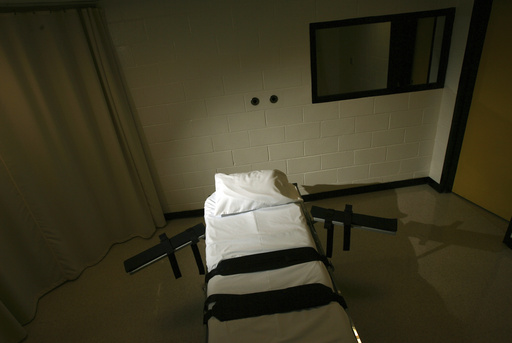
A federal district court has dismissed the appeal of a Georgia death row inmate who claimed that lethal injection could inflict unbearable pain, proposing instead that execution by firing squad be considered. Michael Wade Nance, who is 63 years old, argued his medical history meant that the sedative pentobarbital—currently the sole execution method permissible in Georgia—could lead to extreme discomfort, violating his constitutional protections. However, U.S. District Judge J.P. Boulee determined on Thursday that Nance did not adequately demonstrate his claims, leading him to refrain from discussing the possibility of a firing squad as an alternative means of execution.
Attorney Anna Arceneaux, representing Nance, opted not to comment on the judge’s decision but confirmed that they intend to file an appeal. Nance’s legal dispute began in January 2020 and has since reached the U.S. Supreme Court in a previous ruling.
Nance’s conviction stems from a 1993 incident in which he killed Gabor Balogh following a bank robbery in Gwinnett County. After stealing money with dye packs designed to explode, Nance left his vehicle and shot Balogh as he was exiting a parking space at a nearby liquor store.
The defense argued that Nance’s veins pose a challenge for lethal injection, asserting that they are difficult to locate visually and that any visible veins may be compromised. They expressed concern that the execution could lead to the drug leaking into surrounding tissues, resulting in agonizing pain. Additionally, they noted that Nance’s long-term use of medication for chronic back pain could diminish the effectiveness of pentobarbital during the execution.
In his ruling, Judge Boulee referenced testimony from a medical professional who indicated that Nance had undergone three separate medical procedures requiring intravenous access since the initiation of the lawsuit, without encountering complications.
Addressing the potential impact of Nance’s pain medication on the execution drug’s efficacy, Boulee highlighted the uncertainty expressed by a doctor hired by the defense, who stated that the effects could not be definitively identified.
The U.S. Supreme Court has established that to successfully challenge a method of execution under the Eighth Amendment, an individual must demonstrate a substantial risk of serious harm. Furthermore, they must propose alternative methods that are feasible, readily implementable, and likely to lessen severe pain.
This is the basis on which Nance’s legal team suggested the option of using a firing squad during executions.
The initial lawsuit filed in January 2020 was met with procedural obstacles, as Boulee ruled that Nance’s delayed claims could not be pursued and that he failed to prove a violation of his constitutional rights regarding cruel and unusual punishment. Nance contested this ruling, and the 11th U.S. Circuit Court of Appeals deemed that since lethal injection is the only execution method permitted by Georgia law, his challenge effectively questioned the legitimacy of his death sentence.
The panel asserted that such a challenge was procedurally inadmissible. Nance then appealed to the U.S. Supreme Court, which overturned the lower court’s decision. Justice Elena Kagan, in the majority opinion, confirmed that when disputing Georgia’s execution method, Nance was not restricted to suggesting only options sanctioned by state law. She argued that permitting executions by firing squad would not be notably obstructive to enforcing the death penalty.
As a result, the case returned to Judge Boulee, who conducted a bench trial in May. During this trial, testimony indicated that firing squad executions could facilitate a swift death. Nevertheless, since Nance did not provide sufficient evidence demonstrating that his medical conditions would lead to severe pain from a lethal injection, Boulee stated that he had “no need to address” the argument regarding alternative methods.

